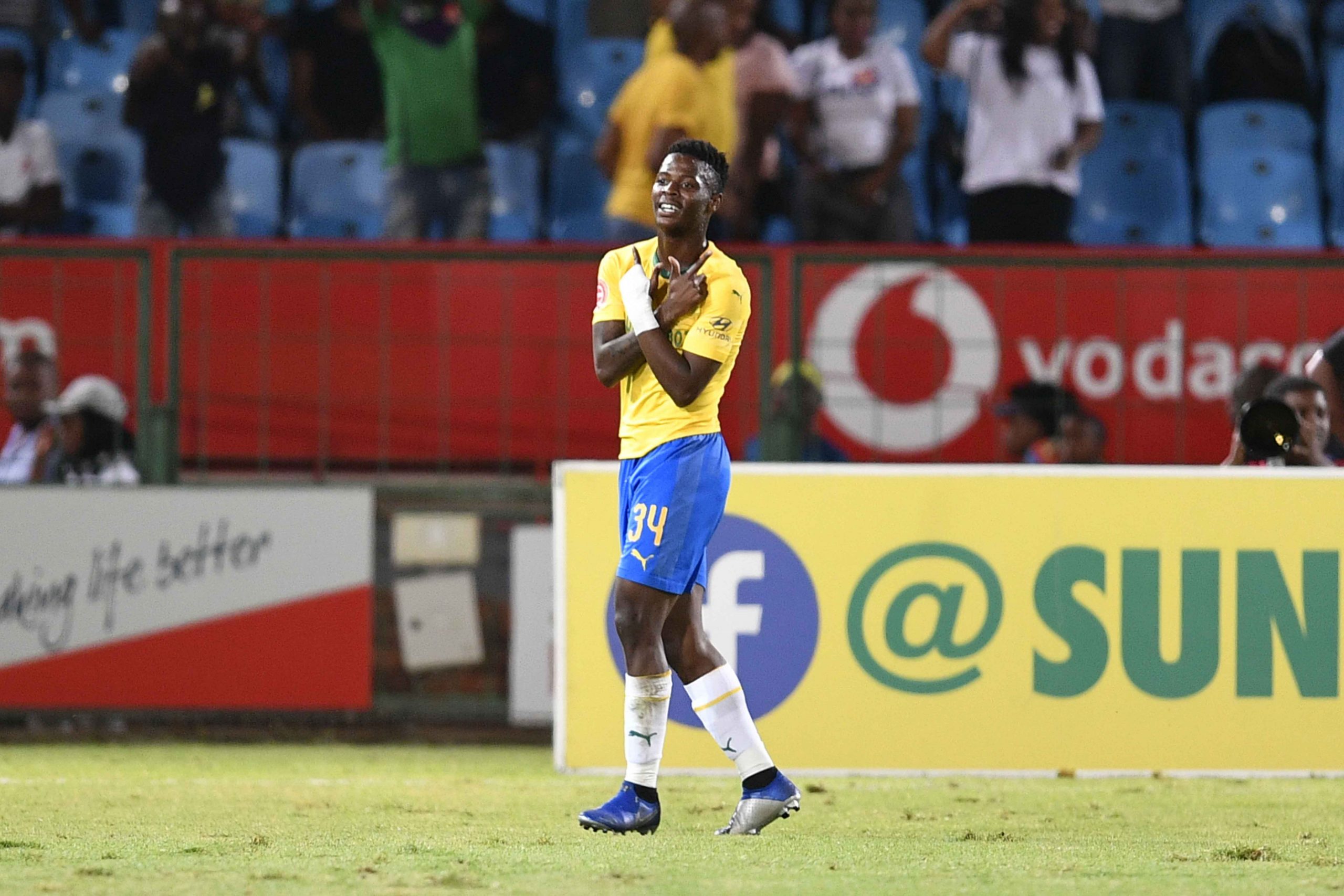The reason for the glitch in Phakamani Mahlambi 2.0
Mahlambi hasn’t hit the high notes he reached before his injury three years ago, and he won’t do so until he learns to handle the heavy load he carries on and off the field.
Author:
6 April 2019

“It’s the culture of winning, embedded in their DNA, that makes them such a great team,” Phakamani Mahlambi said in response to what makes Al Ahly the most powerful and most feared club in African football.
The Egyptian giants are the benchmark for success. They have won more trophies than any other club in world football. The silverware that has graced their trophy cabinet in their 111 years of existence is more than what some mines have produced in their lifetime. The Red Devils have won the Egyptian League (40), Egypt Cup (36) and CAF Champions League (8) a record number of times.
Mahlambi was there when Al Ahly added league title No. 40 in the 2017/2018 season. But his contribution was small. He only played 12 matches in the league, and not once did he last the full 90 minutes. He scored one goal and had five assists in those matches before returning to South Africa to join Mamelodi Sundowns in August last year.
Related article:
“It was good. Everything was good,” Mahlambi said, in response to how he found his time at Al Ahly, a historic move that saw him become the first South African to play in Egypt and the first player from the country to turn up for the Red Devils.
His response was quick, as if hurrying me to ask another question instead of dwelling too much on his short-lived spell at Al Ahly. That chapter of his life ended with Mahlambi boycotting training in an effort to force a move to Sundowns. His stay in Egypt was far from good. He didn’t live up to expectations and was eventually deemed surplus to the needs of the side from Cairo. The Brazilians rescued the situation by signing him.
Language barrier
Mahlambi’s struggles go beyond what he did or didn’t do on the field. The demands at Al Ahly are extremely high. He couldn’t cope with that, along with the demotion of going from Bidvest Wits’ talisman to being an extra in an all-star cast.
“The language barrier was the biggest problem,” Mahlambi said. “It was a difficult one. But I knew what I went there for. I had to play football. The language was just another issue that I couldn’t solve. I just focused on what brought me there.”
There were rumours that the Clever Boys shipped Mahlambi to Egypt, far from home where he enjoyed superstar status, because the bright lights of Braamfontein and the temptations they come with were starting to blind him. As a small fish in an ocean of superstars, Mahlambi drowned.
Related article:
“I learned a lot in Egypt,” Mahlambi said at Bidvest Stadium, his former home where he returned with the Under-23 national team last month. “My time there is driving me to go out of the country again, to experience new things and hopefully it will come to fruition some day.”
Al Ahly would have been the perfect stepping stone to Europe for Mahlambi. The Egyptian giants, owing to their prestige and dominance in African football, are on the radar of many teams from the top leagues in Europe. With that opportunity missed, Mahlambi has to use Sundowns as a bridge to Europe and follow in the footsteps of Bongani Zungu, Keagan Dolly and Percy Tau.
Slaying the Red Devils
To do that, Mahlambi has to perform in the CAF Champions League. Sundowns will face Al Ahly in the quarterfinals on 6 April at Lucas Moripe Stadium in Atteridgeville, with the return leg on 13 April at Suez Stadium in Egypt.
“I don’t want to put pressure on myself and say that I want to do this and that against my former team,” Mahlambi said. “It’s just going to happen naturally when it happens. For us, as Mamelodi Sundowns, we just have to focus on ourselves, do what we do best. We have to be prepared and willing to fight for South Africa.”
Related article:
Mahlambi also has to fight for his career. He hasn’t been the same since spending about 10 months on the sidelines nursing a career-threatening injury. Physically he is the same. The torn ligaments in his knee (the medial and anterior collateral ligaments) didn’t take the speed out of his game thanks to his brother, Mthobisi, donating his hamstring to repair Phakamani’s knee. Mahlambi’s problem is more mental.
The 21-year-old carries a heavy burden on and off the field. On the field, he has to prove that Al Ahly were wrong to let him go so quickly and that the Absa Premiership Young Player of the Season award he received in 2016/2017 was the start of great things to come and not the end. Proving his worth on the field is the easy part.
A brother’s sacrifice
Mahlambi has always had a point to prove on the field, from his days in Louwsburg, where he had to show he was starting on merit and not because his father was the coach and owner of Louwsburg Aces, to his time at the School of Excellence, hundreds of kilometres away from his home in KwaZulu-Natal. He succeeded in that regard because of his talent, going on to become part of a legendary generation that gave Wits – the oldest club in the premiership – their first league title.
What’s wearing Mahlambi down is proving that his brother’s sacrifice was worth it. Mthobisi doesn’t hold it against Phakamani that he gave up his budding football career for his younger brother. But Phakamani can’t escape the fact that he not only has to do well for himself now but also for his brother and his family.
Related article:
“I told myself that even if I have to quit my career for his, it would be worth it,” Mthobisi said on Phakamani’s return from injury three years ago.
“He is the breadwinner at home. I didn’t care about my career at that point. I told myself that if it doesn’t work out, I will just further my studies at university. I was only thinking about Phakamani when I made that decision [to donate my hamstring].
“Even though he is younger than me, he has always paved the way for me. What he has done for my family and my community is a great thing. I believe that he won’t end here. He’ll end up somewhere in Europe and when he does that, he’ll take a part of me with him. We would both have made it.”
That’s a heavy load for anyone to carry, least of all a 21-year-old, which is why Phakamani Mahlambi 2.0 has had some glitches. This huge responsibility makes breaking into Sundowns’ star-studded team the least of his worries. Once he breaks into the team, he has to consistently do well for himself and his brother. The silver lining is that he has many years ahead of him to get it right and make up for lost time. One of his second chances is the Olympic Games.
Return to Egypt
The injury Mahlambi sustained in 2016 ruled him out of the Olympics in Brazil. But with age on his side, he can go to Japan as one of the Under-23 players. South Africa’s Under-23s are one round away from reaching the Africa Under-23 Cup of Nations that will be staged in Egypt from 8 to 22 November. They first have to beat Zimbabwe in June to be one of the eight nations that go to Egypt.
A top three finish in the land of the Pharaohs will earn them a ticket to Japan for next year’s Olympics. Achieving that would be sweet on two levels for Mahlambi, he would have succeeded in a country where he failed initially and would finally become an Olympian.
“It wasn’t easy for me to watch the team at the Olympics, but I had to overcome my disappointment,” Mahlambi said. “I couldn’t do anything about the fact that I couldn’t be there. I just let it go, knowing that I still have another chance to play at the Olympics because I am young.
“Everything is going well so far. I haven’t had any problems. I would like to be injury-free for a few seasons so that I can fulfil my potential.
“This is another opportunity for me to go to the Olympics. We just have to work hard as a team, get to Egypt and finish the job there. The young talent that we have will get exposure from playing in the Olympics and, who knows, they could go on and play overseas. Hopefully they get good offers after it to take care of their families.”




